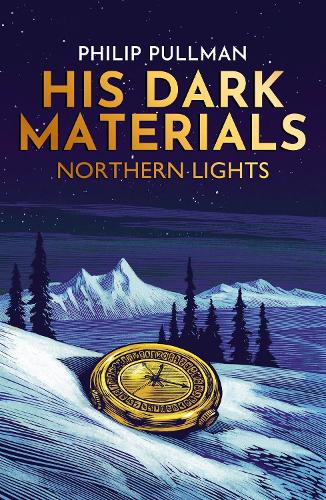Book #70
Northern Lights by Philip Pullman
When Lyra's friend Roger disappears, she and her dæmon, Pantalaimon, determine to find him.The ensuing quest leads them to the bleak splendour of the North, where armoured bears rule the ice and witch-queens fly through the frozen skies - and where a team of scientists is conducting experiments too horrible to be spoken about.Lyra overcomes these strange terrors, only to find something yet more perilous waiting for her - something with consequences which may even reach beyond the Northern Lights.
The first and only time I read this series was as a fourteen year old girl. Seventeen years later, with the arrival of La Belle Sauvage, I am embarking on this journey again, no longer a fresh and lovely fourteen, but a bitter and miserable thirty-one. I’ve gone from resembling Lyra, to resembling Mrs Coulter minus the monkey. But some books can transcend your years - I loved this as a young woman, and utterly cherished it as an old one.
Pullman’s first notable skill here is his ability to widen the appeal of what is essentially a young adult novel. For the young, it’s a story of adventure, of overcoming adversity, of survival, of fuck the grown-ups and their macabre plans. For the old, it takes on a far more philosophical approach, a symbolic study of childhood, free will, and hierarchical horrors. And for all of us, every single one of us, Pullman delivers a beautiful and compelling story in a curious and enchanting world. This is the embodiment of fantasy for me – you can stick your Lord of the Rings where the Northern Lights don’t shine.
The universe Pullman introduces to us holds a number of interesting factors; one of the first we come across is the existence of dæmons. Each human has a creature attached to them, as though with an invisible cord. This creature is their companion for life, and also, in effect, their soul living outside their body. Children’s dæmons have the ability to change form at will until the child comes of age, when the dæmon will settle into a fixed form. I adored this concept; the idea that your dæmon doesn’t settle its form until you’re secure in your adulthood; the assumption that no child understands who they are, hence ever-changing dæmons, and adults absolutely do understand themselves, hence fixed dæmons; the way the children’s dæmons flicked from shape to shape dependent on the child’s mood; the ability to judge an adult by which form their dæmon has fixed upon – this list is endless. Dæmons are an amazing plot device, and god help me, I want one.
In terms of the story itself, Pullman completely nails everything. The pace is excellent, the world-building exquisite, and the characters deeply weaved and utterly gorgeous. It isn’t often I love a character so much that my heart wrenches in pain, or leaps in joy for them, but I felt everything here, and almost had a few embarrassing outbursts in public whilst reading.
I’m so pleased to find this novel delights my heart as much as it did many years ago. It’s amazing how an author can evoke the same feelings in you, regardless of whether you’re in your teens or your thirties.
Now it’s time to reacquaint myself with Will.

